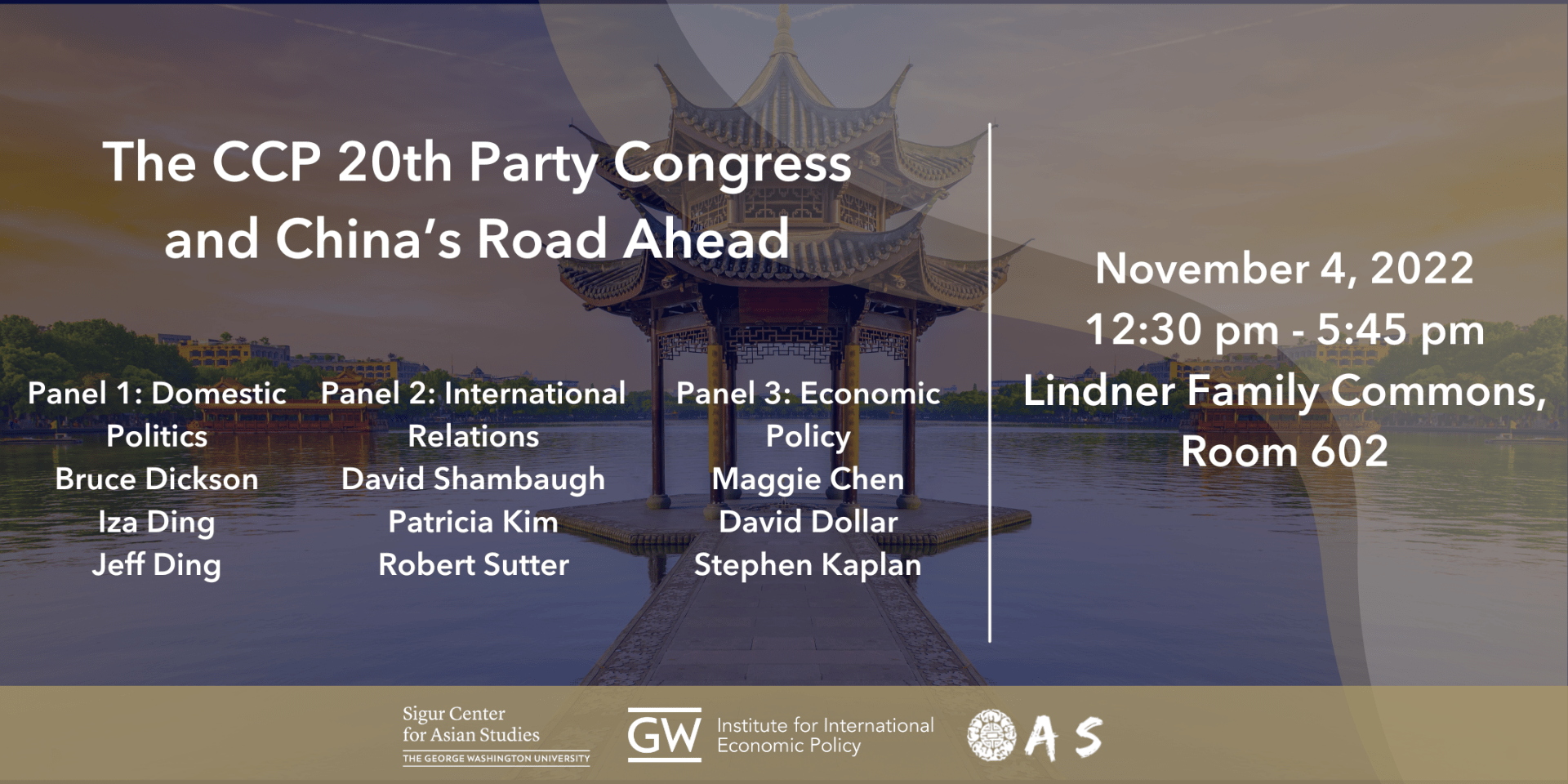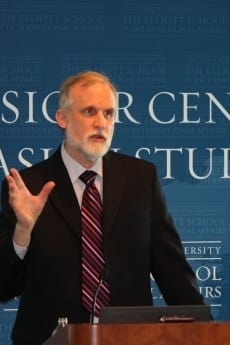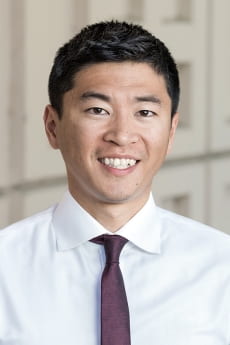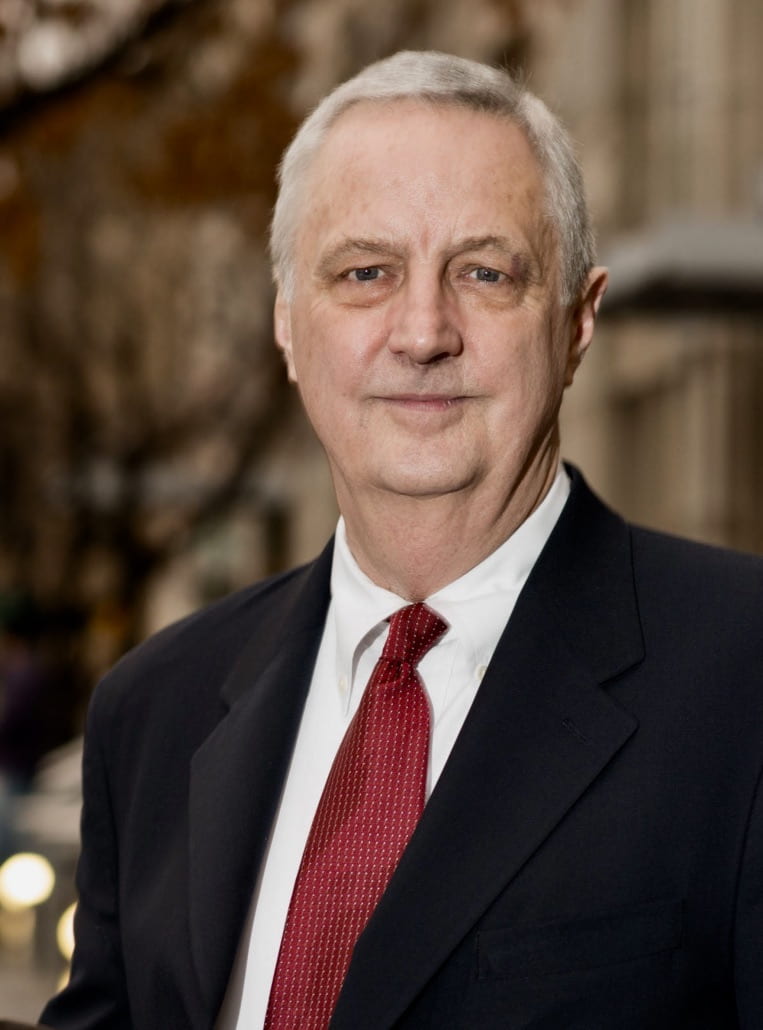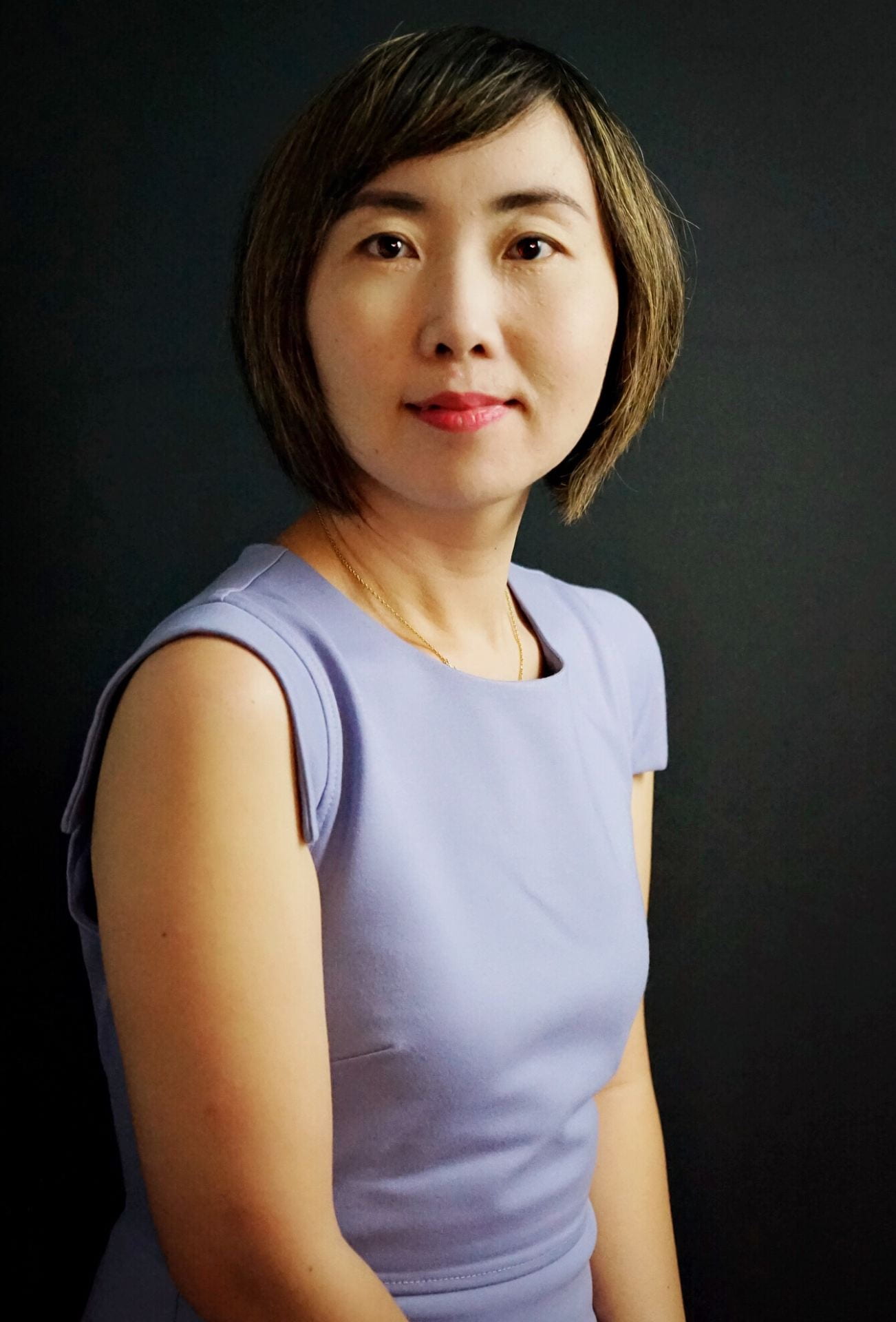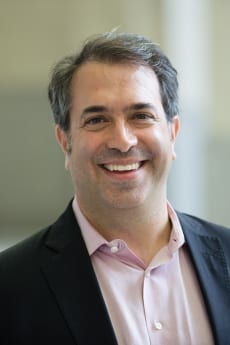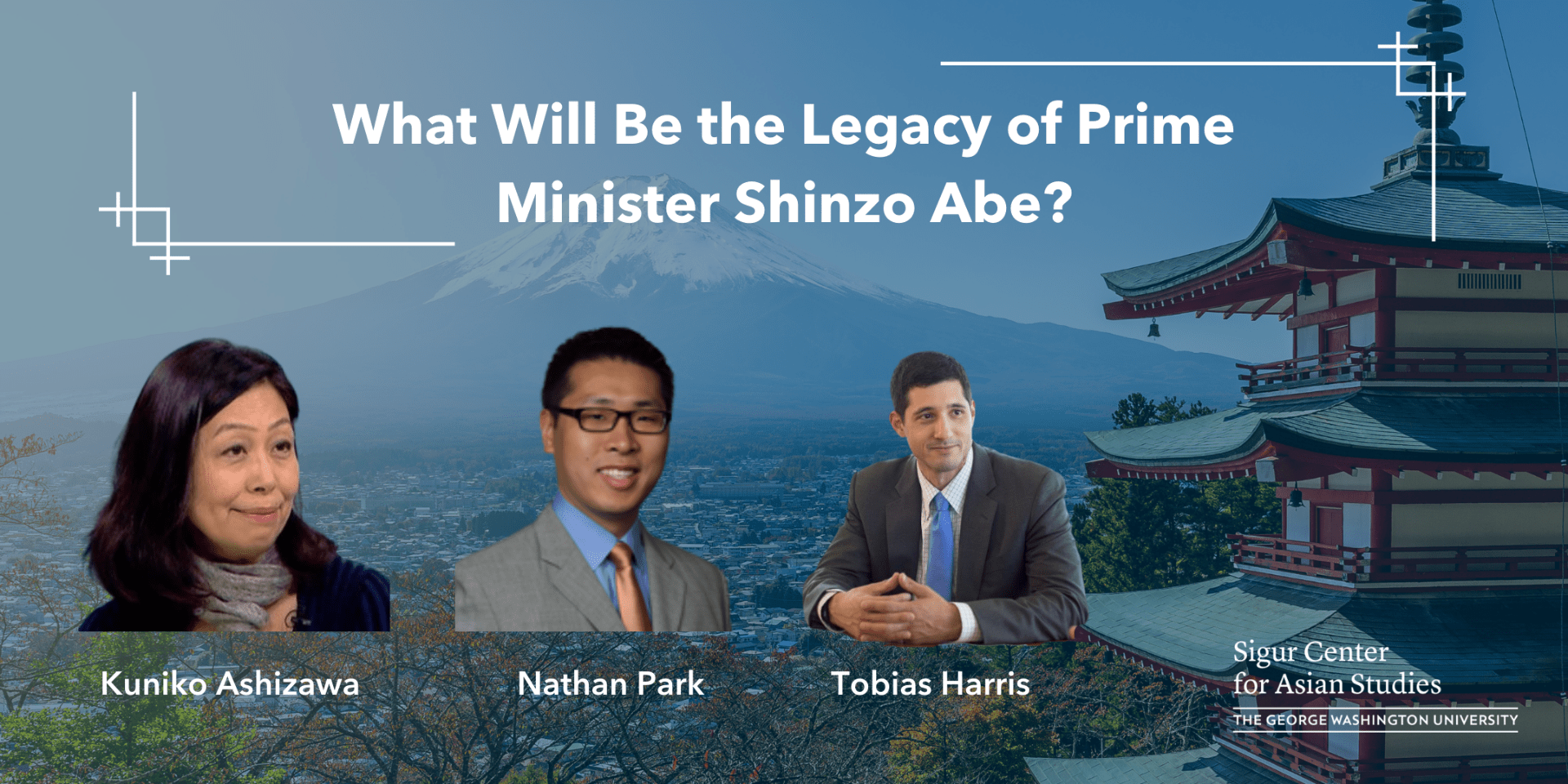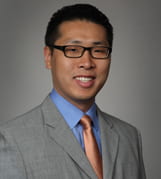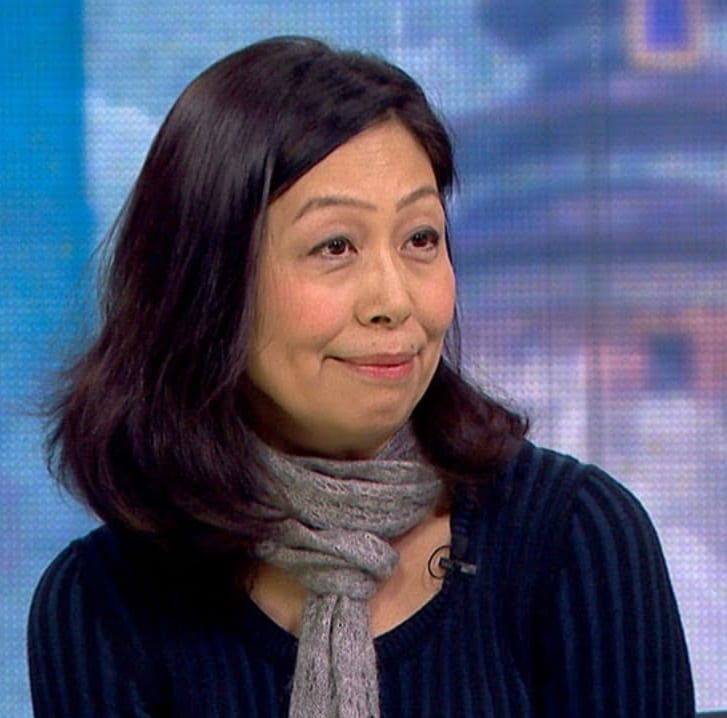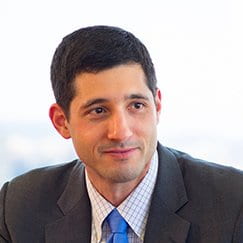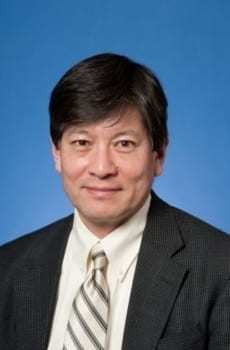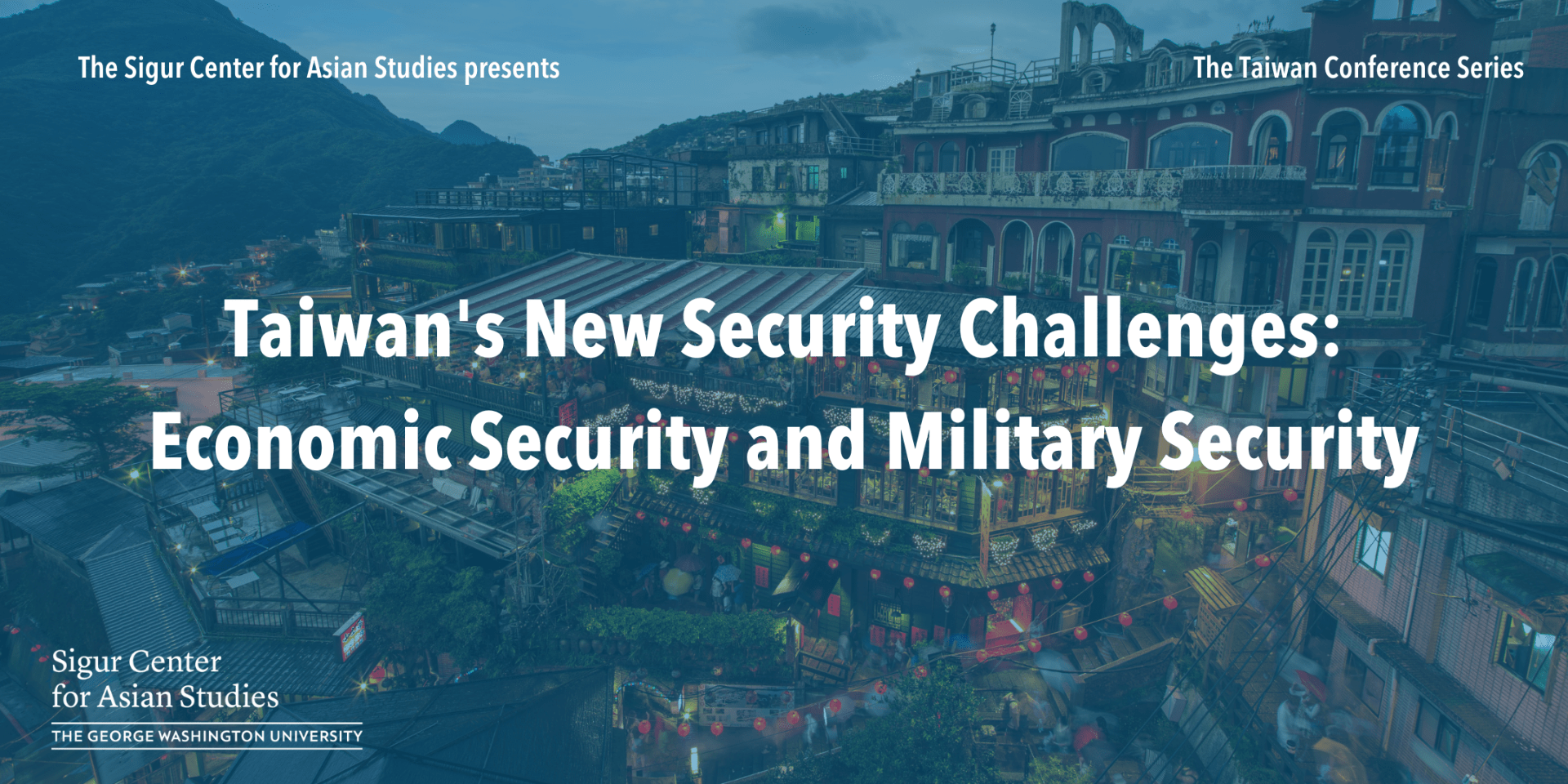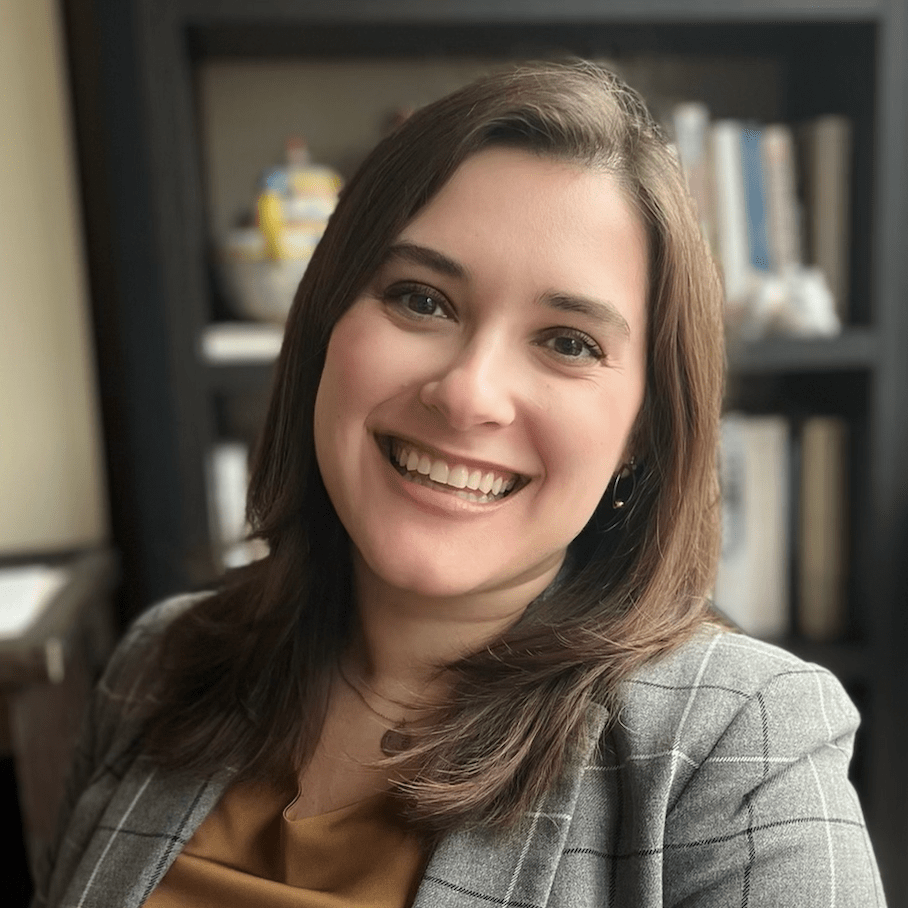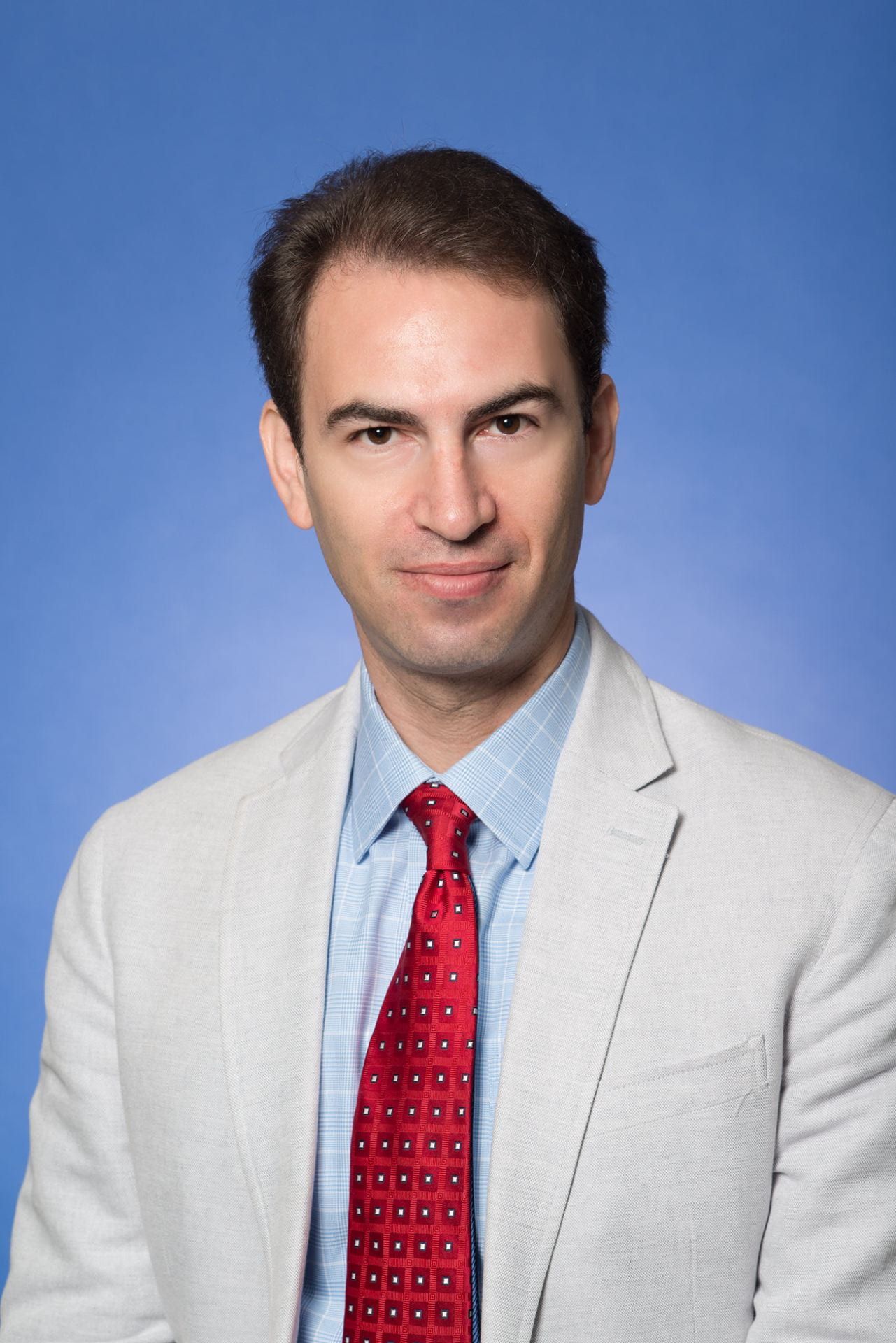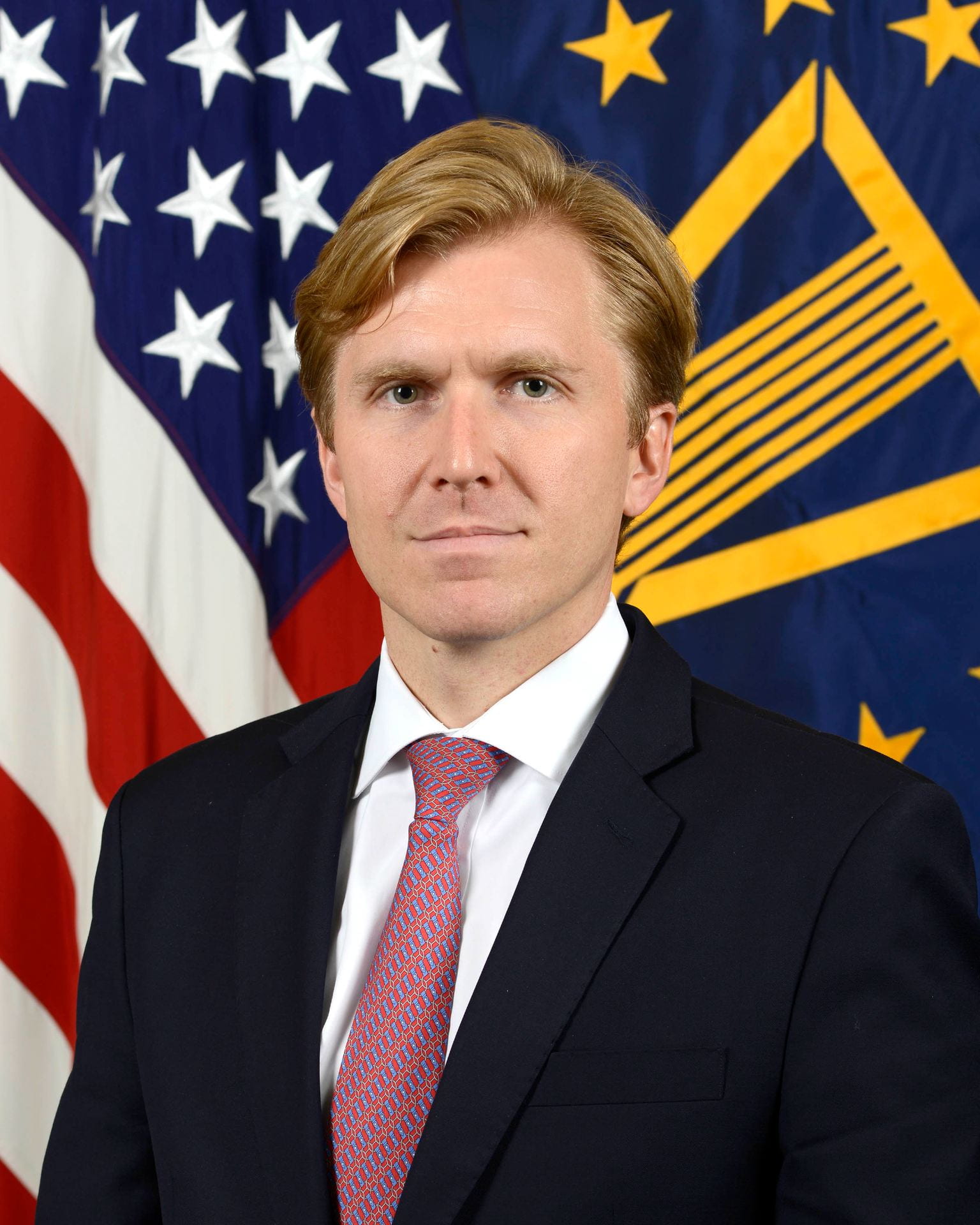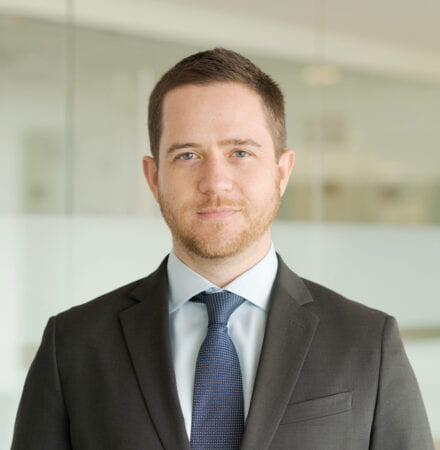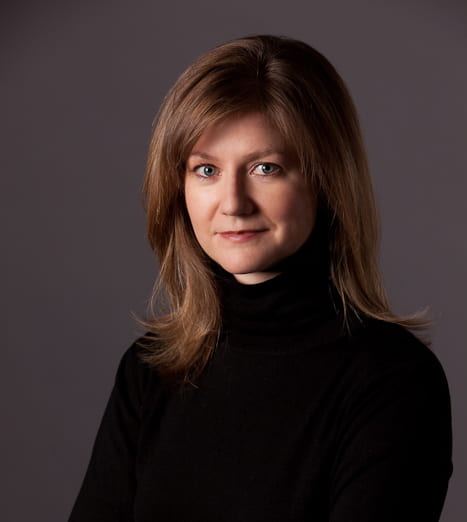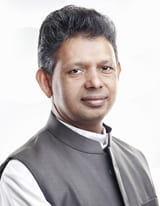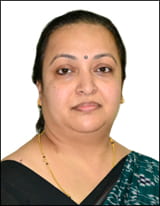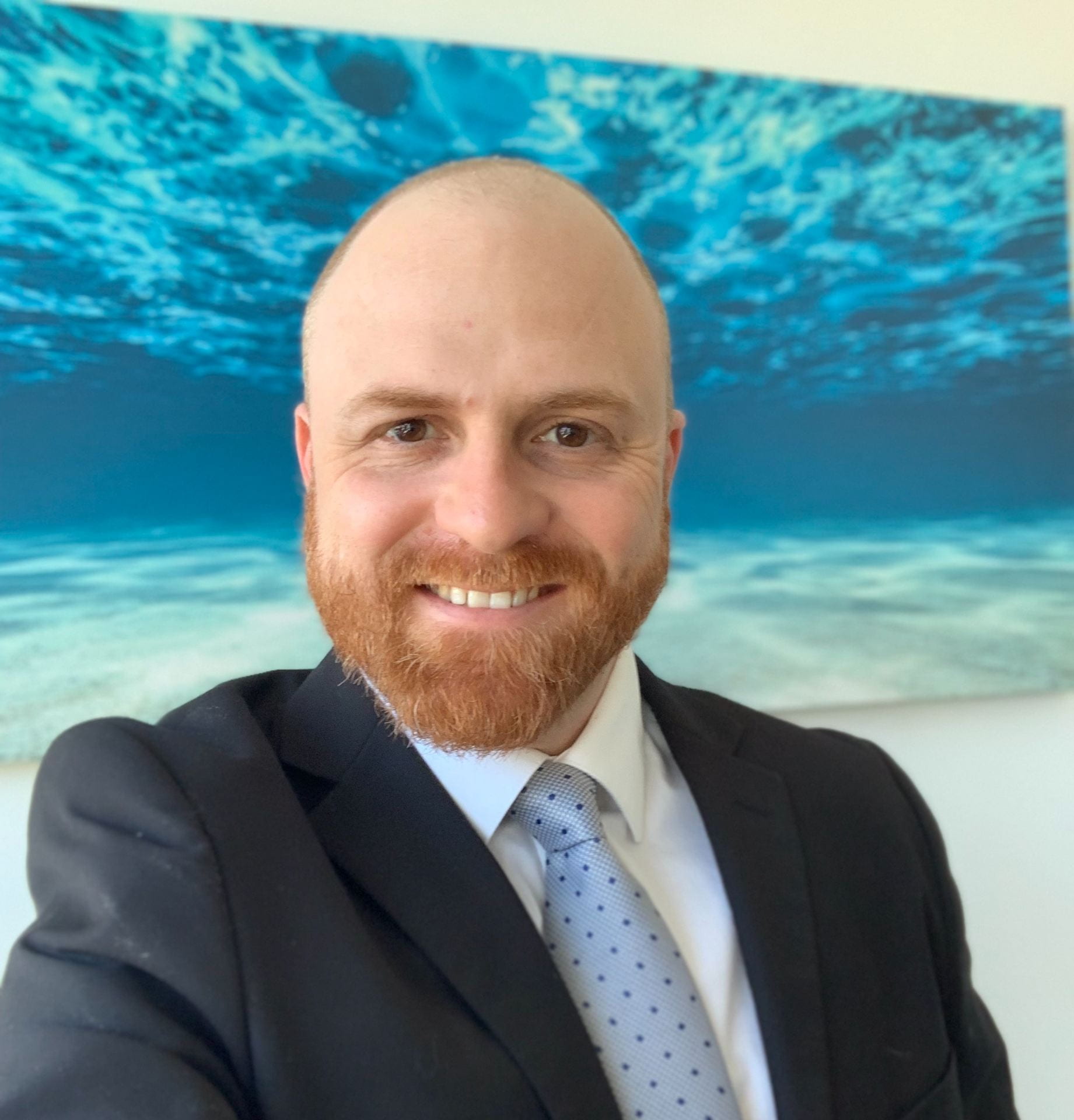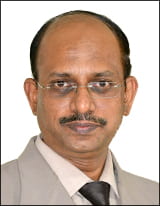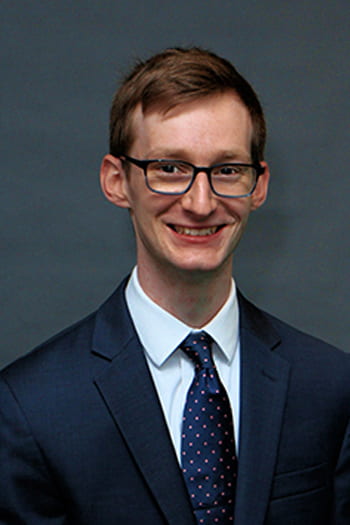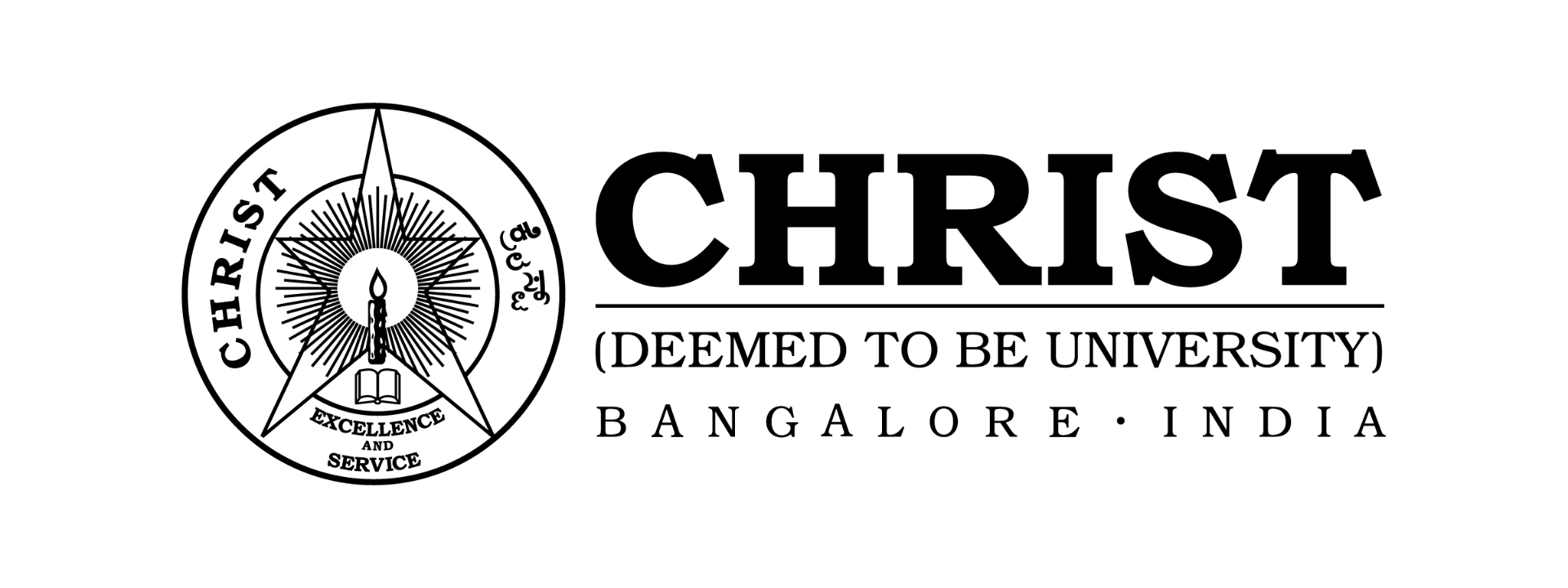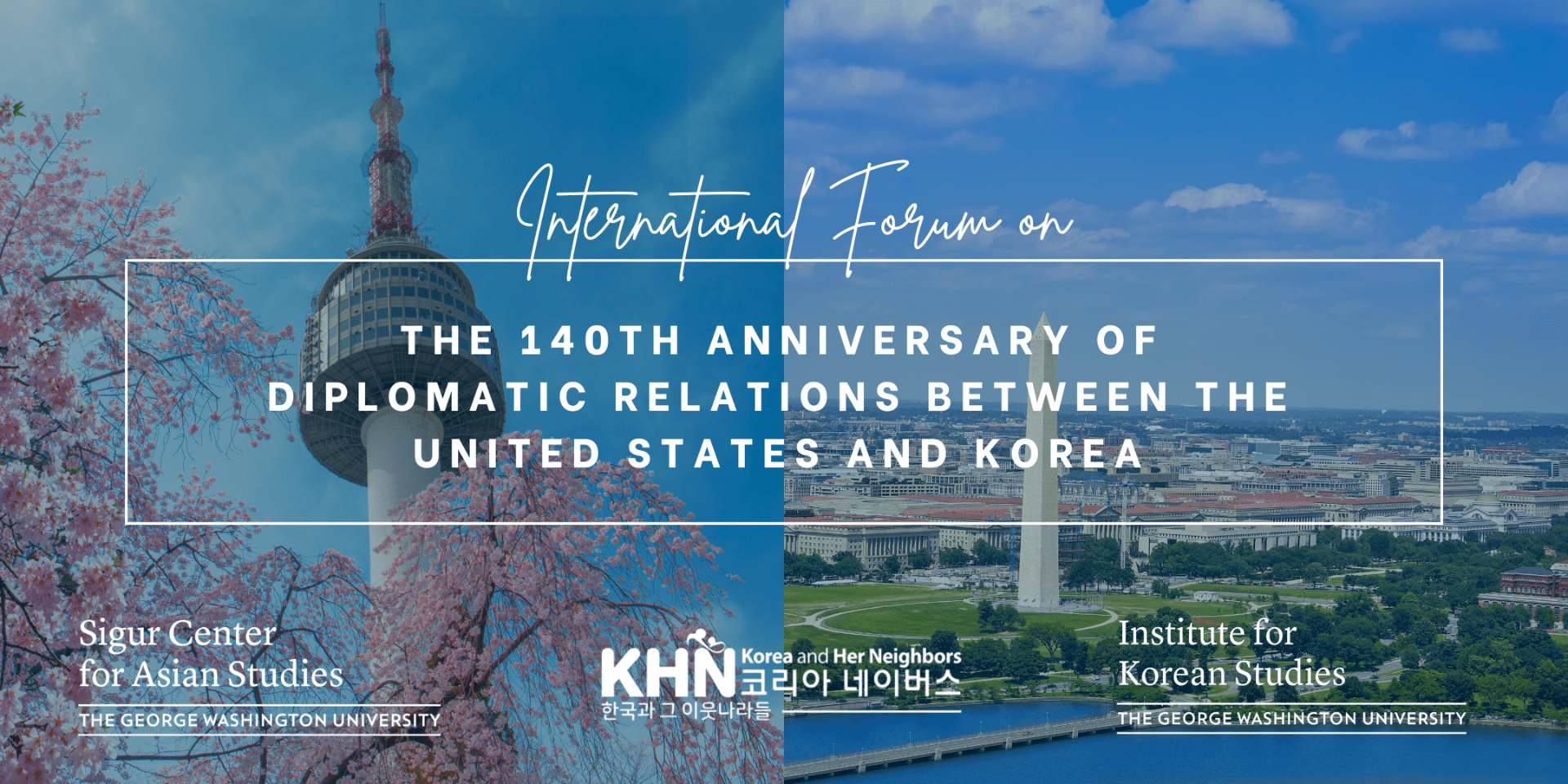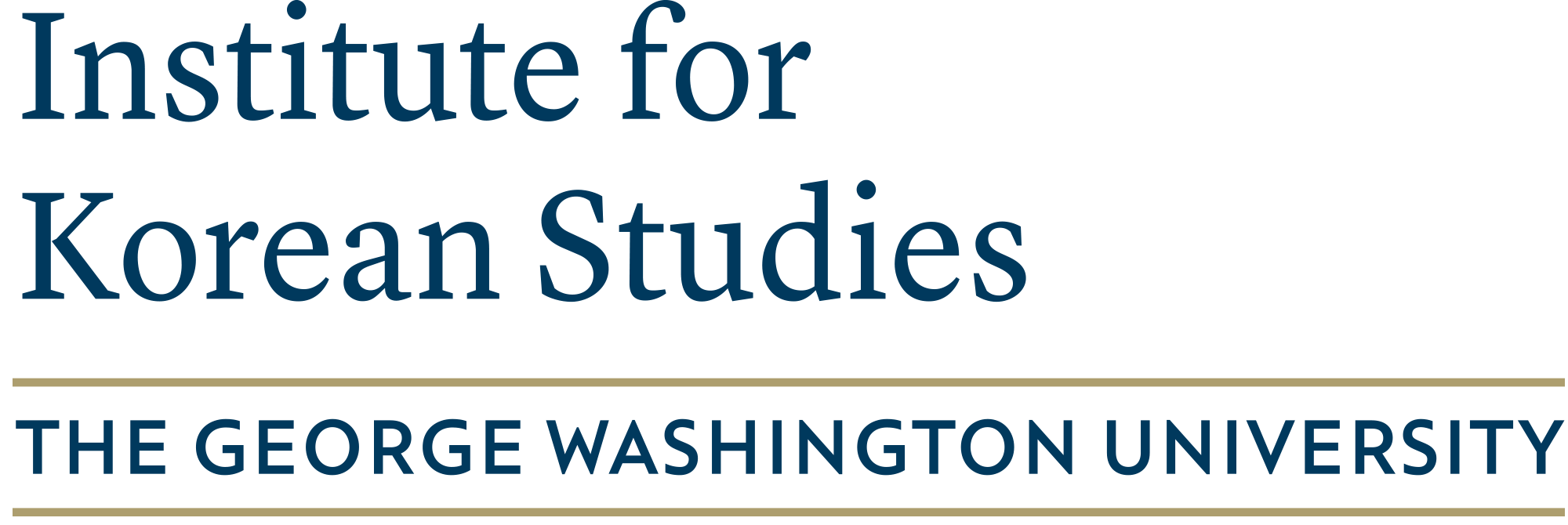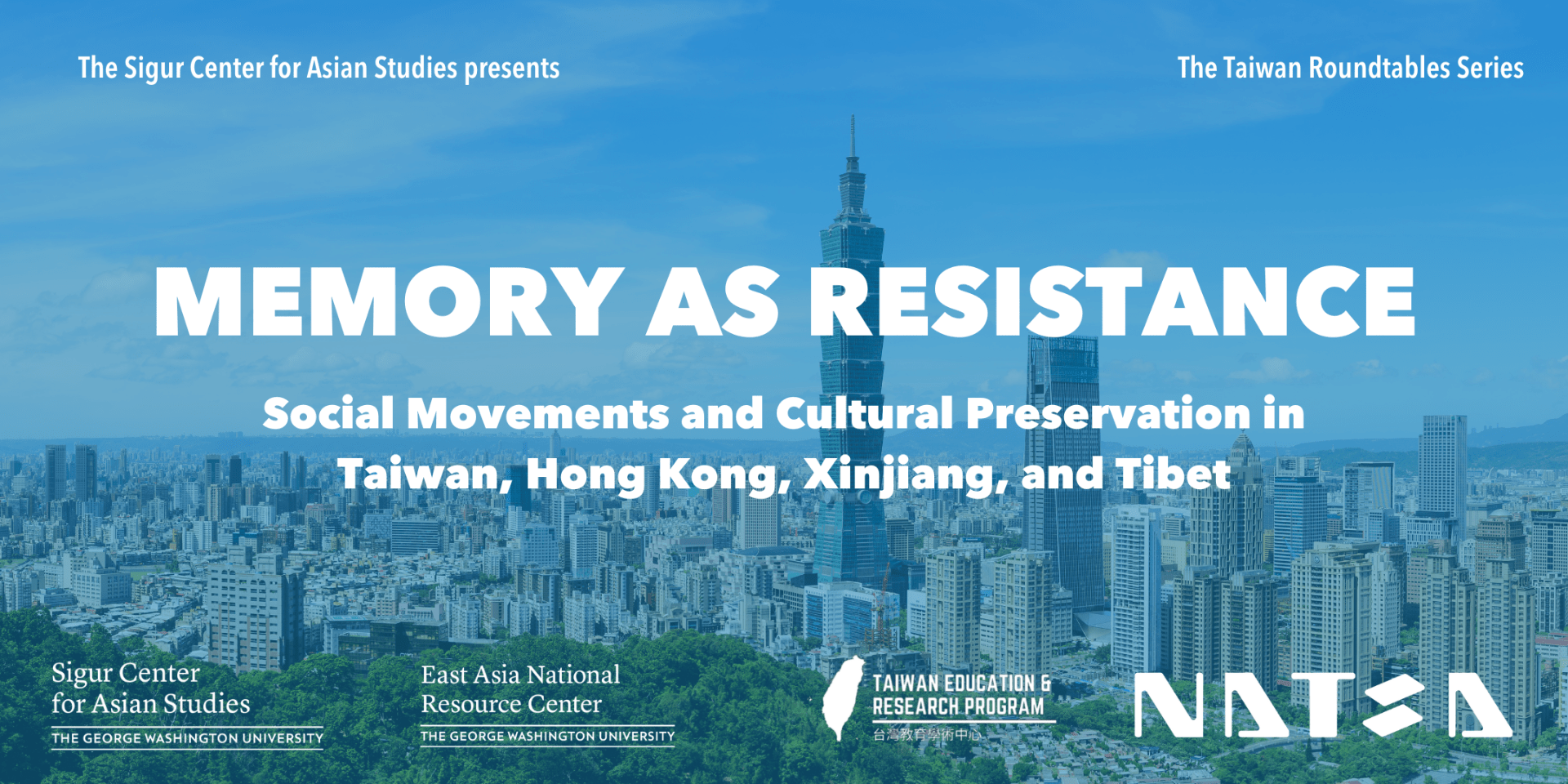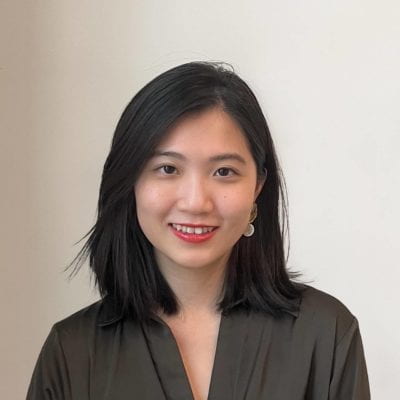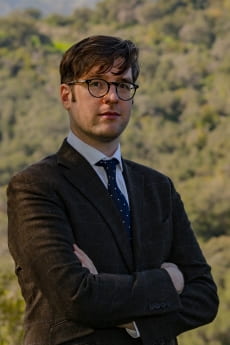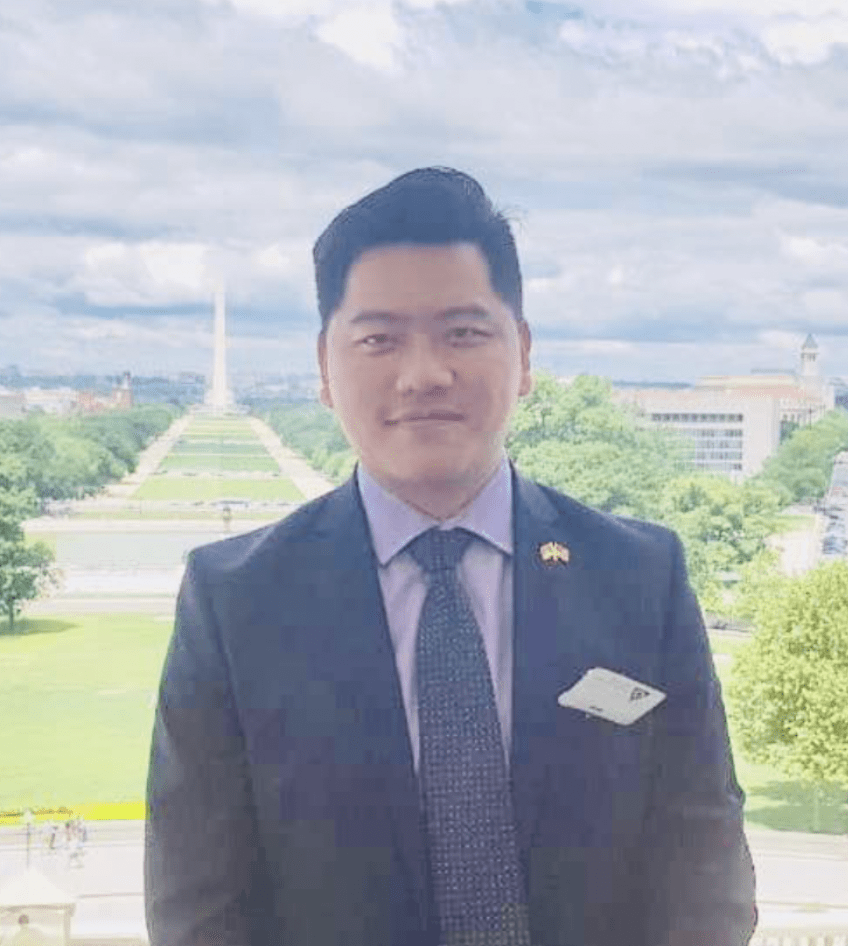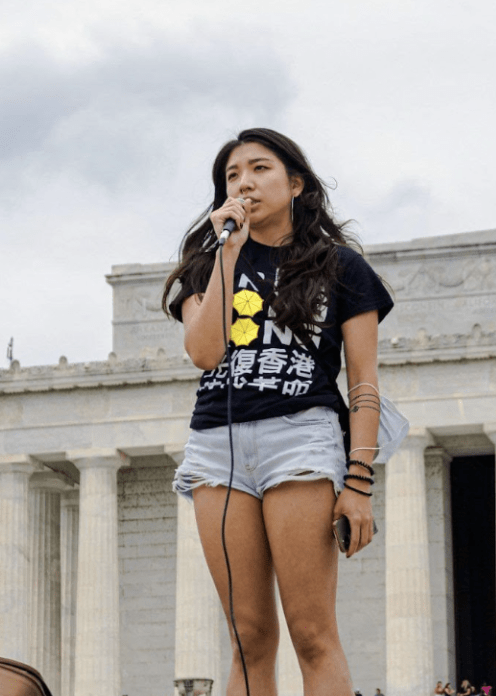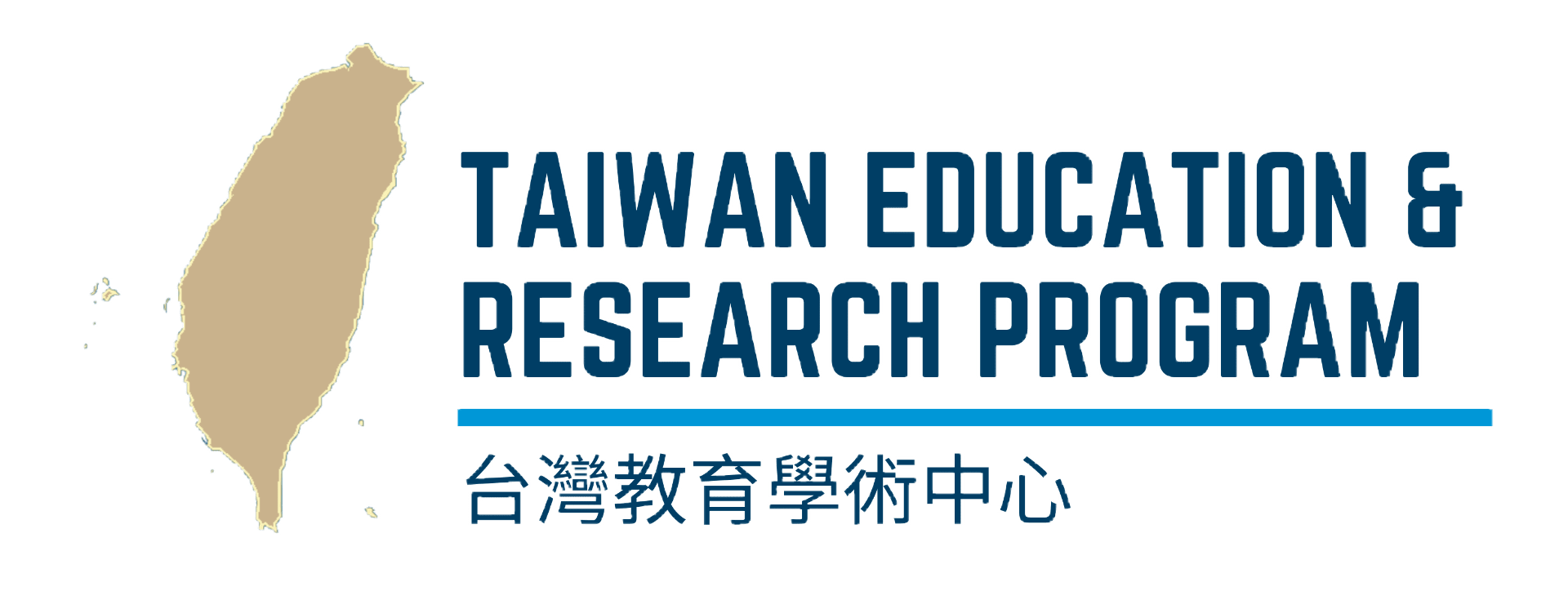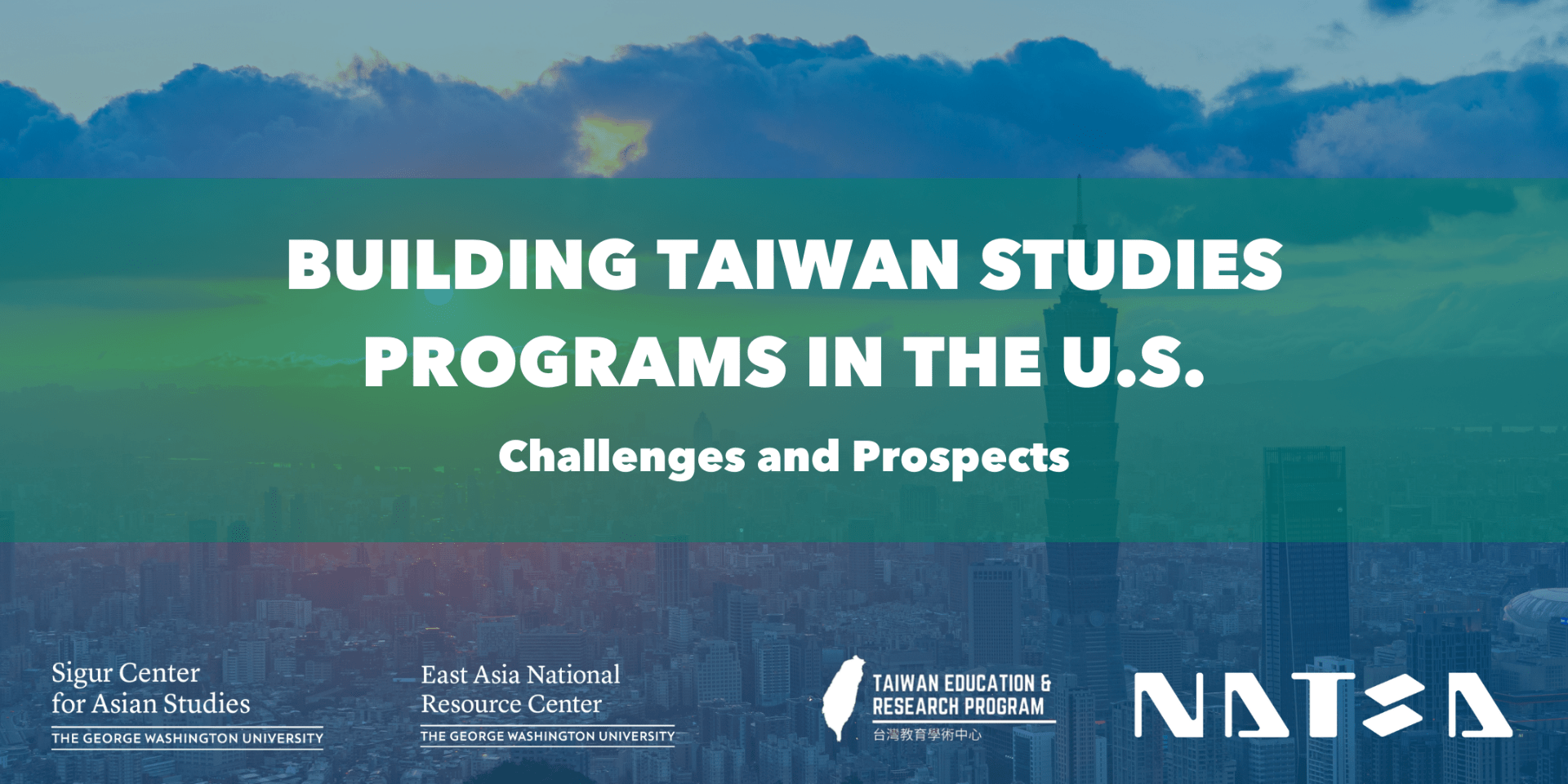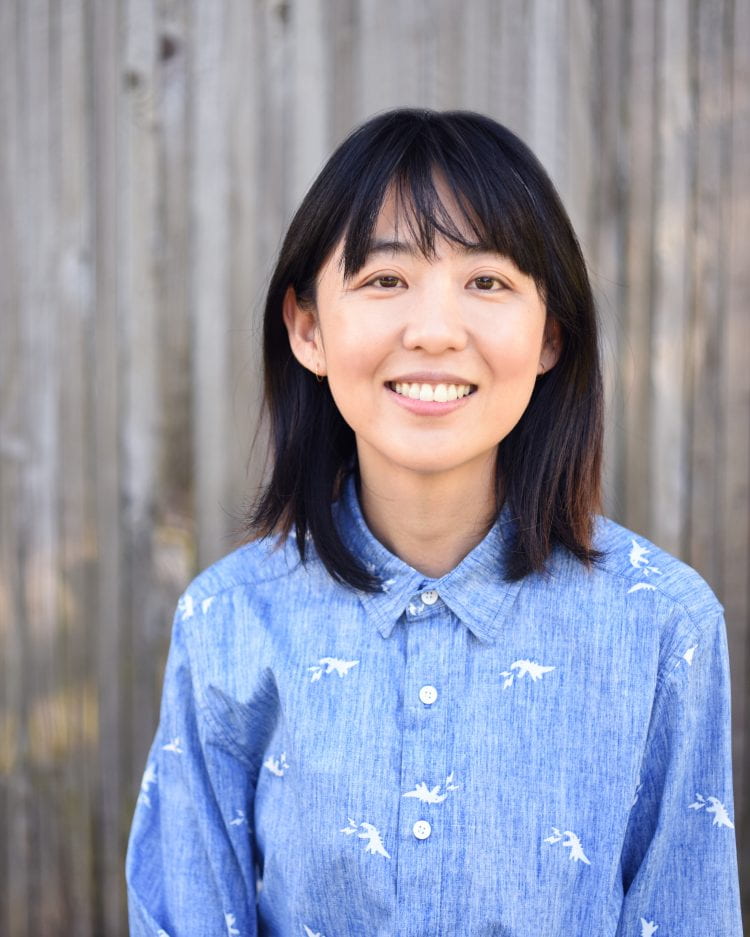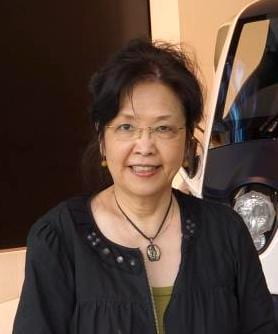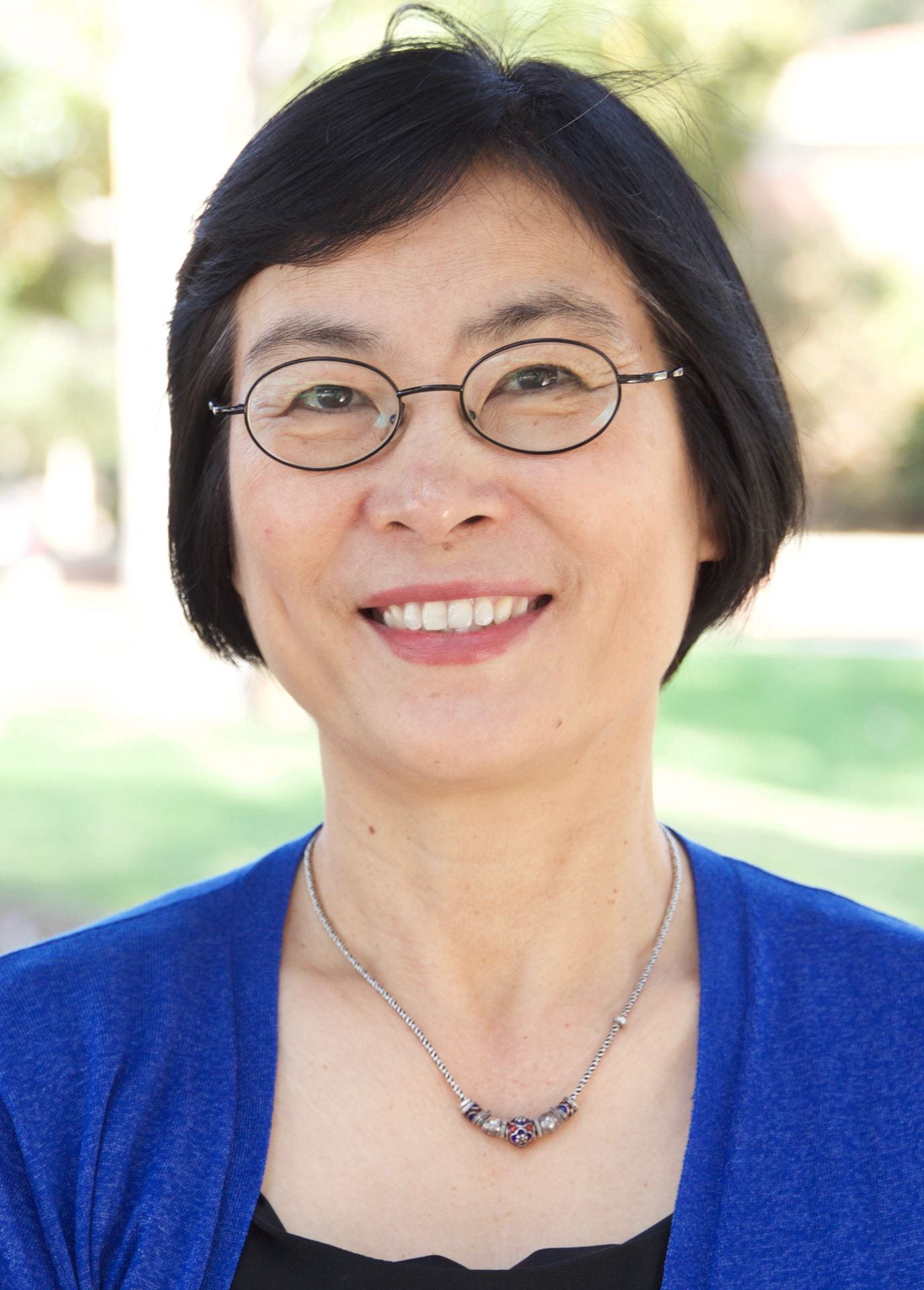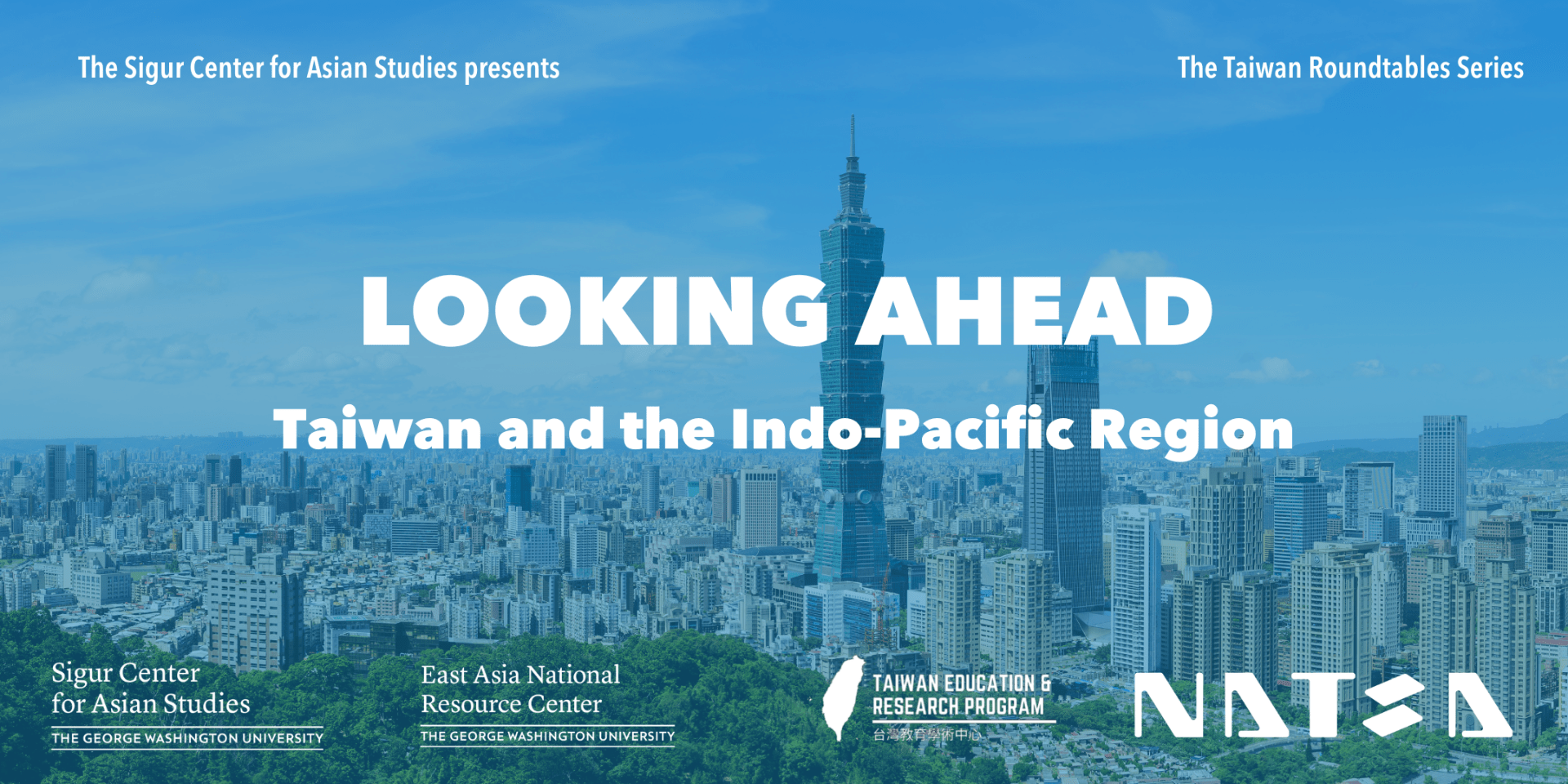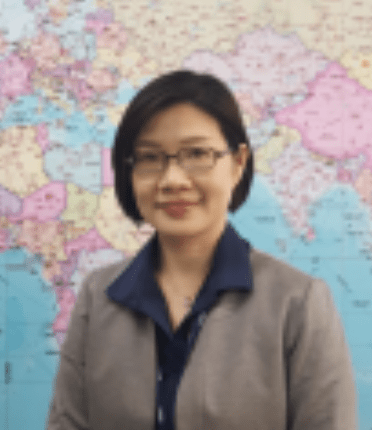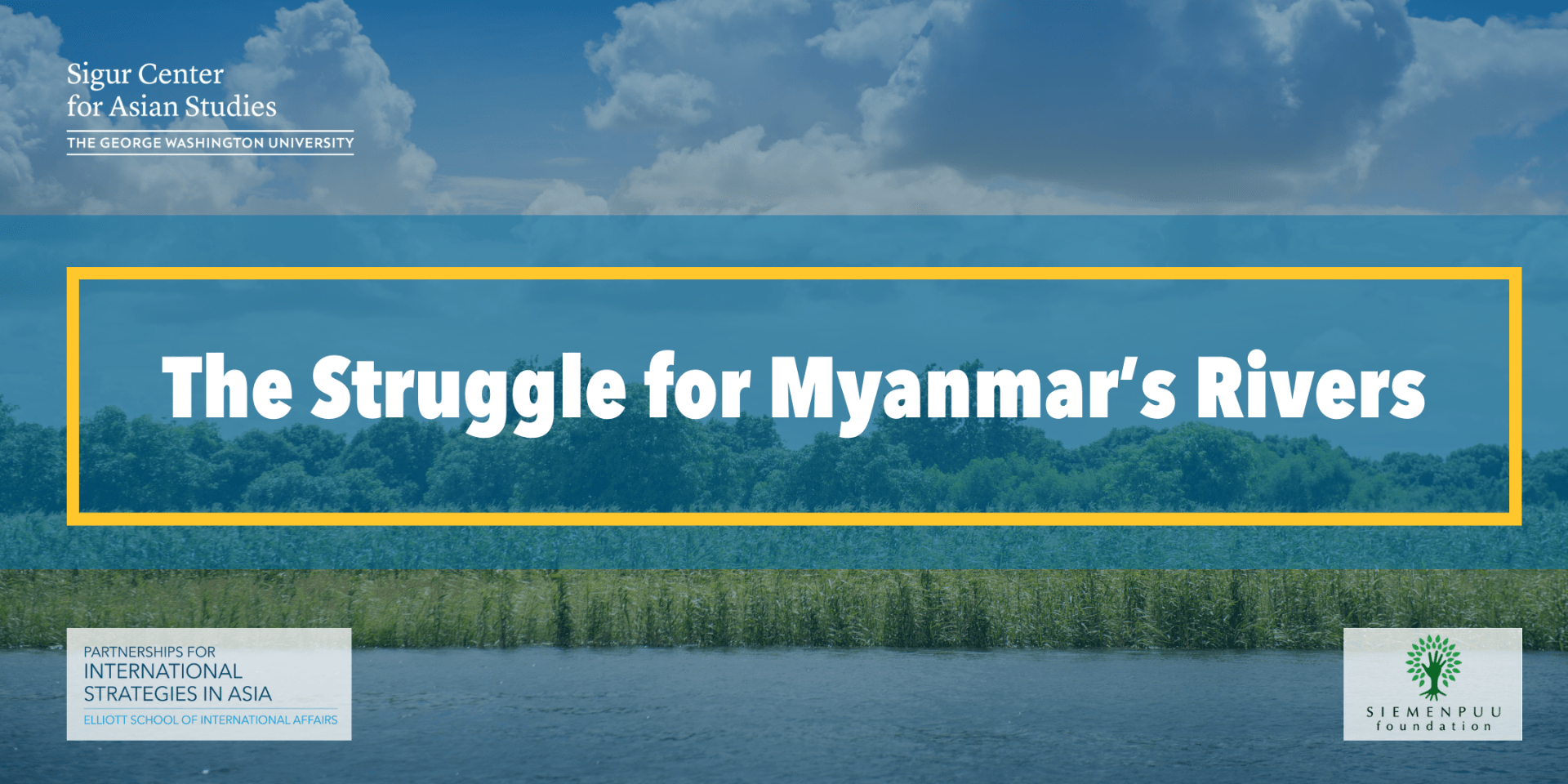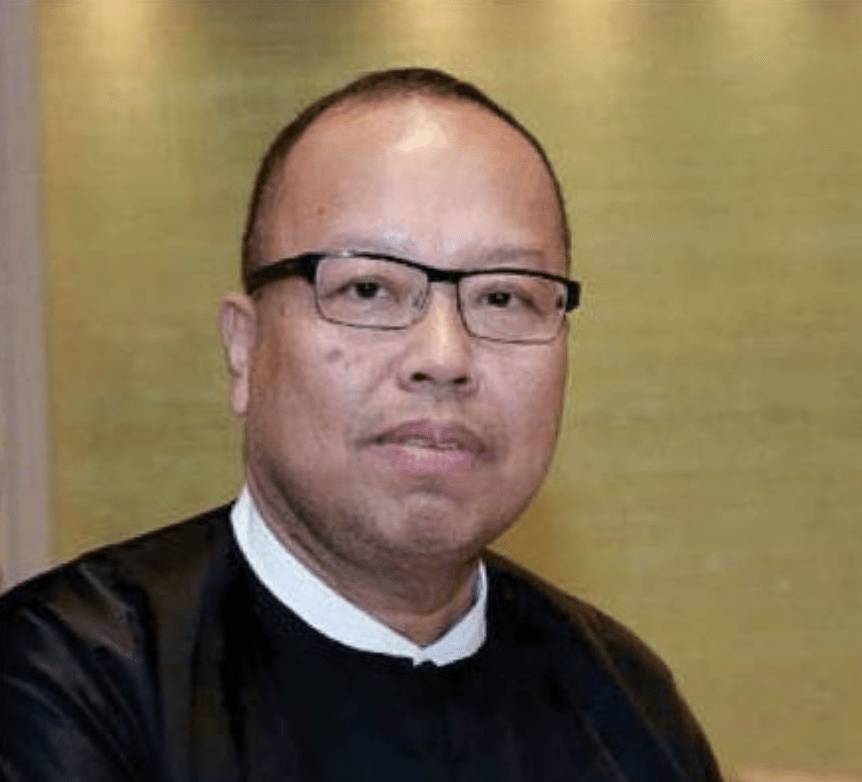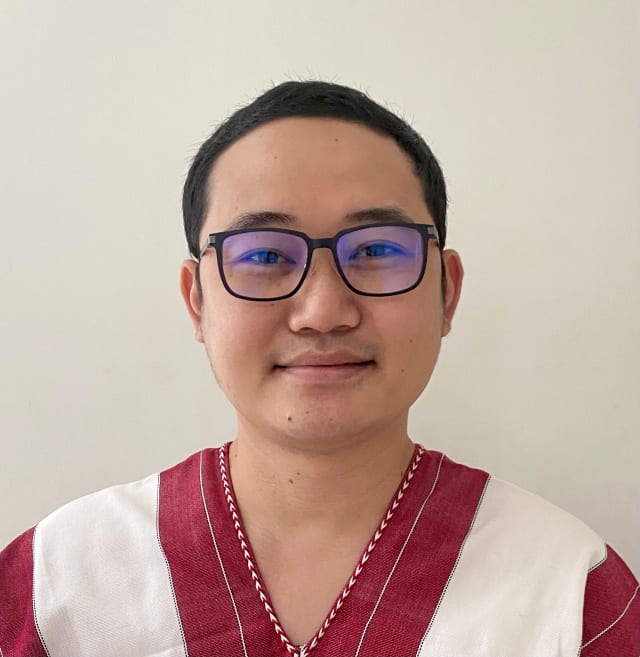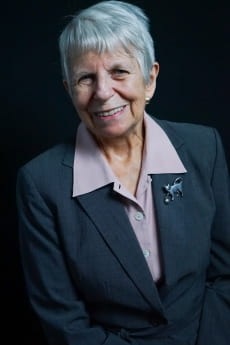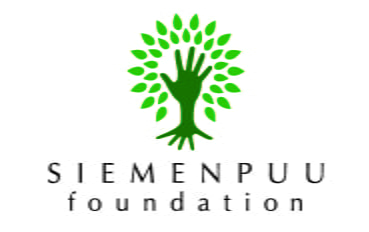Tuesday, November 15, 2022
12:00 PM – 2:00 PM EDT
Lindner Family Commons, Room 602
Elliott School of International Affairs
1957 E ST NW, Washington, DC 20052
In August, Taiwan and the U.S. began formal negotiations for the U.S.-Taiwan Initiative on 21st Century Trade with an ambitious roadmap. This is expected to lay the groundwork for growth in trade as well as other new areas for collaboration. In this post-crisis period since August, how are economic relations between the US and its eighth largest trading partner set to take off?
Join a group of leading experts at the Sigur Center’s Taiwan Roundtable Luncheon on Tuesday November 15 as they look at the political economy drivers of the U.S.-Taiwan relationship and how Taiwan’s economic position may be safeguarded in a more uncertain current global economic environment.
Registration is free and open to the public. This event is IN-PERSON only. Lunch will be held from 12:00-12:30 pm and the event will be held from 12:30 – 2:00 pm.
This event will be recorded and will be available on the Sigur Center YouTube channel after the event.
Agenda
12:00pm – 12:30pm | Lunch
12:30pm – 2:00pm | Taiwan and Post-Crisis Economics: New Pathways for U.S.-Taiwan 21st Century Trade
- Ambassador Kurt Tong, Managing Partner, Executive Committee at The Asia Group, “Balancing the Politics and Economics of U.S.-Taiwan Trade”
- Riley Walters, Deputy Director of the Hudson Institute Japan Chair, “Boosting U.S.-Taiwan Trade Ties”
- Vincent Wang, Dean College of Arts and Sciences, Adelphi University, “Explaining Taiwan’s Economic Agenda”
- Moderator: Deepa Ollapally, Sigur Center for Asian Studies, George Washington University
Speakers
Ambassador Kurt Tong is Managing Partner and member of the Executive Committee at The Asia Group, where he leads consulting teams focused on Japan, China and Hong Kong, and on East Asia regional policy matters. He also leads the firm’s innovative thought leadership programs. A leading expert in diplomacy and economic affairs in East Asia, Ambassador Tong brings thirty years of experience in the Department of State as a career Foreign Service Officer and member of the Senior Foreign Service.
Prior to joining The Asia Group, Ambassador Tong served as Consul General and Chief of Mission in Hong Kong and Macau, leading U.S. political and economic engagement with that important free trade hub. Prior to that role, he served as the Principal Deputy Assistant Secretary for Economic and Business Affairs at the State Department from 2014 to 2016, guiding the Department’s institutional strengthening efforts as its most senior career diplomat handling economic affairs. He also served as the Deputy Chief of Mission and Chargé d’Affaires at the U.S. Embassy in Tokyo from 2011 to 2014, where he played a key role in setting the stage for Japan’s entry into the Trans-Pacific Partnership and supporting Japan’s recovery from the Great East Japan Earthquake.

Riley Walters is deputy director of the Hudson Institute Japan Chair. His research objectives include expanding economic ties and promoting closer scientific and technological collaboration between the United States and Japan. Mr. Riley is also a senior non-resident fellow with the Global Taiwan Institute. Prior to joining Hudson, he was a senior policy analyst and economist in the Asian Studies Center at the Heritage Foundation. Previously, he was a Penn Kemble fellow with the National Endowment for Democracy, a George C. Marshall fellow at the Heritage Foundation, a national security fellow with the Foundation for Defense of Democracies, and Kim Koo fellow with the Korea Society. Mr. Riley has appeared on national television and radio extensively. He has written for a variety of publications, including The Hill, Japan Times, Global Taiwan Brief, ACCJ Journal, The Diplomat, the Washington Times, the National Interest, Fox Business, Geopolitical Intelligence Services, and others. Mr. Riley has bachelor’s and master’s degrees in economics from George Mason University. He has previously lived in Japan, including one year with strawberry farmers in Kumamoto prefecture and one year while studying at Sophia University in Tokyo. He is fluent in Japanese.
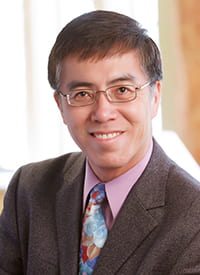
Vincent Wei-Cheng Wang is Dean of the College of Arts and Sciences and Professor of Political Science at Adelphi University. Wang formerly served as Dean of the School of Humanities and Sciences at Ithaca College. He was formerly a Professor of Political Science and Chairman of the Department at the University of Richmond, specializing in international political economy and Asian studies. He has been a Visiting Professor or Fellow at National Chengchi University (Taipei), National Sun-Yat-sen University (Kaohsiung, Taiwan), El Colegio de Mexico, and Institute for Far Eastern Studies, Kyungnam University (Seoul, South Korea). He received his Ph.D. from the University of Chicago. He is a first-generation college student and received his BA from National Taiwan University and MA from Johns Hopkins University.
Moderator
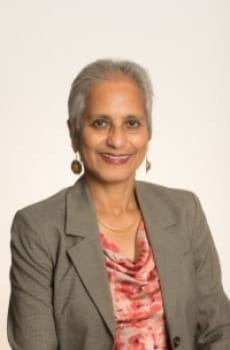
Deepa M. Ollapally is a political scientist specializing in Indian foreign policy, India-China relations, and Asian regional and maritime security. She is a Research Professor of International Affairs and the Associate Director of the Sigur Center. She also directs the Rising Powers Initiative, a major research program that tracks and analyzes foreign policy debates in aspiring powers of Asia and Eurasia.
Dr. Ollapally is currently working on a funded book, Big Power Competition for Influence in the Indian Ocean Region, which assesses the shifting patterns of geopolitical influence by major powers in the region since 2005 and the drivers of these changes. She is the author of five books including Worldviews of Aspiring Powers (Oxford, 2012) and The Politics of Extremism in South Asia (Cambridge, 2008). Her most recent books are two edited volumes, Energy Security in Asia and Eurasia (Routledge, 2017), and Nuclear Debates in Asia: The Role of Geopolitics and Domestic Processes (Rowman & Littlefield, 2016).



